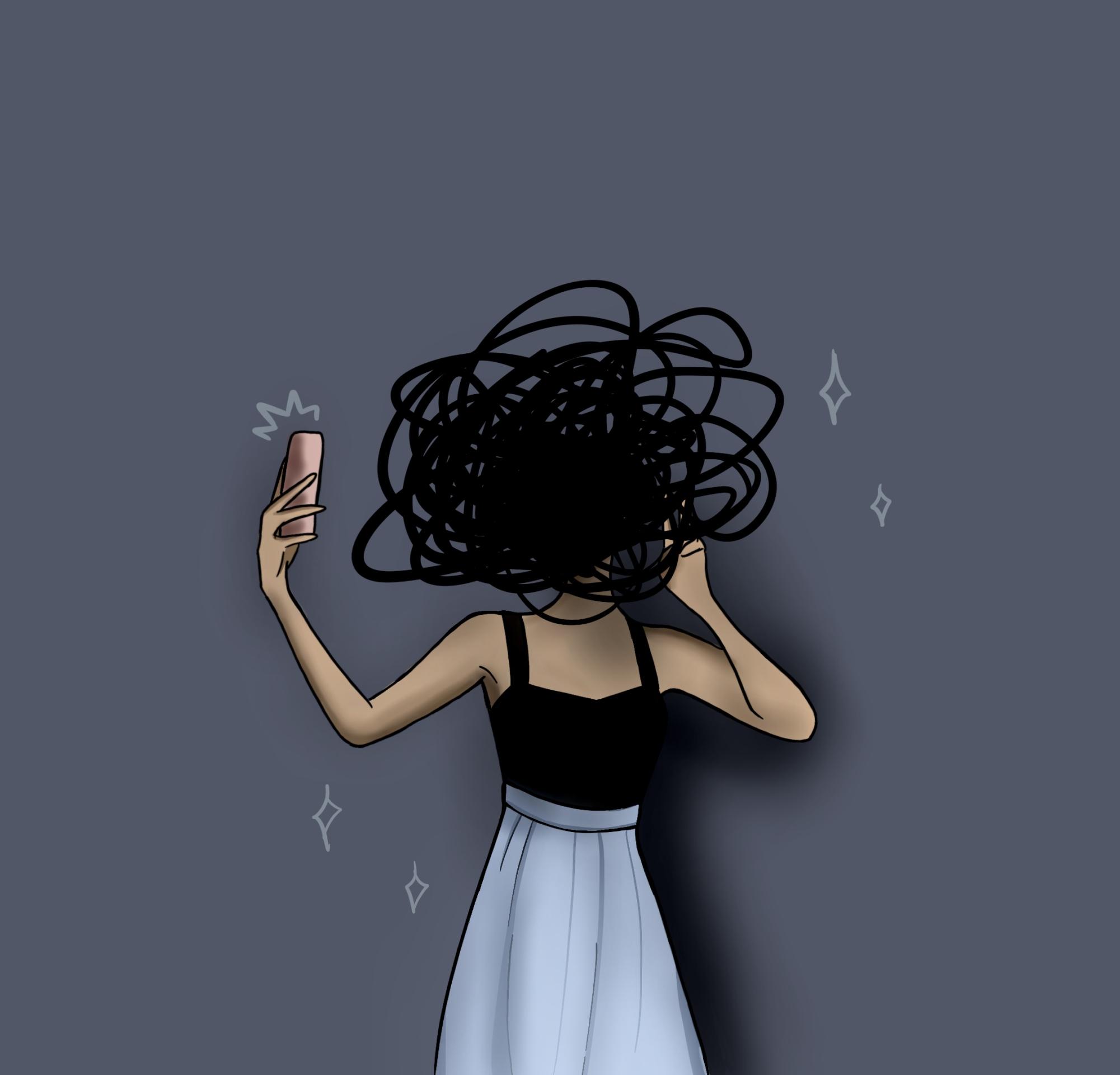A few months ago, my dad poked fun at the launch of the 2009 iPhone 4, the first iPhone to feature a front-facing camera. Prior to its release, front-facing cameras were a peculiar phenomenon. Of course, there was the 1999 Kyocera Visual Phone VP-210, the very first phone to have a frontal camera, but the technology remained widely unestablished. He jokingly remarked that pandemonium would ensue if the latest iPhone debuted without a front-facing camera.
Though it was said in jest, I pondered the underlying truth in my dad’s statement. With the reign of social media and selfie culture, it now seems nonsensical for a phone to lack a frontal camera. Whether it’s capturing that golden hour shot or obsessing over the perfect mirror angle, compulsively taking pictures of oneself has become a defining facet of modern society. As this generation grows increasingly concerned with me, myself and I, the problem with selfies is evident.
Narcissism is a buzzword often thrown around to define a disagreeable, self-important individual with little empathy. A 2019 study discovered a correlation between persistent selfie-posting and grandiose narcissism among American and Lebanese students. Endlessly uploading pictures of oneself can trigger hyper-awareness of one’s appearance and accomplishments, potentially spiraling into chronic self-absorption.
Further, behaving narcissistically can swiftly lead to addiction. Kim Kardashian once revealed that she snapped 6,000 selfies to capture the perfect shot during her trip to Punta Mita in Mexico. That sounds absurd, but it’s not far off from typical Instagram selfie habits. Taking twenty pictures at a time, swiping through each of them and selecting the flawless shot to post has become wrongfully normalized. Such behavior has constructed an atmosphere revolving around irrational expectations and severe, unnecessary perfectionism.
Moreover, a recent narrative review reported that receiving likes corresponded to teens’ feelings of social acceptance and levels of confidence. Selfies are akin to drugs, driving individuals to crave the high of attention and affirmation.
Selfie culture also plays a role in wrecking relationships. Posting suggestive pictures, particularly ones surrounding body image, can trespass boundaries and stir unhealthy tensions between romantic partners. Few people would feel comfortable if their partner posted shirtless selfies on a daily basis.
Comparison is the thief of joy. Once famously shared by Theodore Roosevelt, these words are profoundly relevant to the toxic selfie environment of today. The Let Me Take a Selfie study of 2017 indicated that frequently viewing selfies can spark jealousy and dwindle one’s contentment and self-esteem. Opening Instagram daily to washboard abs and slim bodies is not exactly the best confidence booster.
To fill these gaping holes of insecurity and self-deprecation, filters and altering appearances have become the most pitiful trend of the century. Not only does this behavior indicate deep sadness and dissatisfaction, but it also fans the flames of unrealistic beauty standards and alarming fixations on appearance.
A 2022 study found that 28 percent of teenage girls and pre-teens regularly edit photos to improve their features before uploading onto social media. This includes anything from removing skin blemishes or altering body parts to conform to society’s unreasonable aesthetic ideals. An alarming poll from the American Academy of Facial Plastic and Reconstructive Surgeons revealed that 72 percent of surgeons operated on patients seeking to enhance their selfies and pictures.
Selfies have cultivated a strikingly toxic social setting. Although they can be a source of entertainment and encourage artistic expression, selfies have a nasty tendency to cause more harm than good. Safety is an additional concern, as our digital footprint, including what we post online, generally has an irreversible quality. In other words, once a selfie has been uploaded online, it’s nearly impossible to monitor who shares it, sees it or saves it. This places teenagers in potentially dangerous situations and can expose them to cyberbullying or inappropriate attention from unfamiliar accounts.
Selfies are not inherently pernicious, which begs the question of whether they lean more toward self-empowerment or self-destruction. Considering the myriad detrimental effects accompanying selfie-taking behaviors, it’s clear that selfie culture is wrecking livelihoods and skyrocketing insecurity. If self-empowerment is a universal goal, then removing the “self” from selfie will prove to be immensely beneficial.




